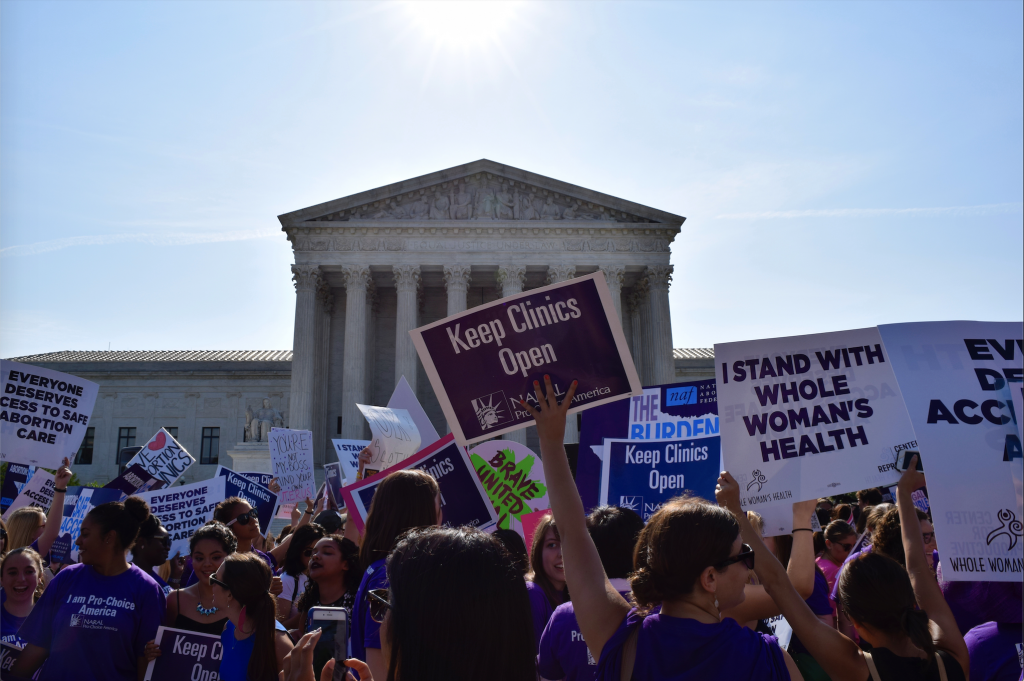Editor’s Note: In the next few articles, we will provide background on the anti-choice legislation that are being passed and proposed so that everyone has some basic information on these laws, and we will report from reproductive justice activists on the impact of these bills, and explore with them the steps forward.
The current wave of anti-choice legislation, supported by Trump’s dangerous rhetoric and his appointment of over 95 federal judges, has deep and lingering consequences that go beyond attempts to restrict bodies. The introduced and accepted legislation has serious consequences for access to medicine, voting rights, bodily autonomy and relief from trauma.

Louisiana: SB 184 Fetal Heartbeat Abortion Ban
(Pending House final passage 5/28/2019) – Proposal to ban abortions in Louisiana as early as the sixth week of pregnancy.
Primary Sponsor: Sen. John Milkovich, 38th District
Impact: Without objection, the Louisiana House Health and Welfare Committee backed legislation to prohibit abortions when a fetal heartbeat is detected. SB 184 will only go into effect if a similarly worded Mississippi law is found constitutional, aligning Louisiana’s fate with Mississippi’s. Should Mississippi’s law be found constitutional by the Fifth Circuit, Louisiana’s will likely be unable to be challenged.
Senator John Milkovich, a proclaimed Democrat and the author of the bill, told AP, “We believe children are a gift from God…once a heartbeat is detected, the baby can’t be killed.” The bill essentially establishes fetal personhood, though does not go as far as Georgia’s abortion ban which includes the fetus in census and tax dependency determinations. SB 184 declares that an “‘[u]nborn human being’” means an individual living member of the species Homo sapiens throughout the entire embryonic and fetal stages, from fertilization through full gestation and birth.”
SB 184 has exceptions from the ban to prevent the pregnant person’s death or impairment to bodily function, but does not include exceptions for rape or incest. Doctors who perform abortions could face up to two years in prison and lose their medical license.
Bills that would have allowed equal pay, secured a minimum wage increase and allowed state localities to raise minimum wage were not passed. Michelle Erenberg told The Advocate, “They should stop wasting time and money passing blatantly unconstitutional bills, and instead focus on legislation that would really help women and families like paid family leave and raising the minimum wage.” Falling in line with other state representatives, Louisiana’s law makers have proven that they are pro-fetus by failing to pass measures that protect and promote life after birth.
Anti-choice, forced-birth legislation, particularly in southern states like Alabama, Georgia and Louisiana where abortion is technically legal but realistically unattainable, threatens livelihoods, access to education and health . More than 10 percent of Louisianans entering prenatal care who considered abortion also tried to self-induce in hopes of aborting.
SB 184 will become immediately effective upon a final decision of Jackson Women’s Health Organization v. Currier.
Other Legislation
HB 133 – ABORTION: Revises the definition of abortion. HB 133 changes the definition of abortion from “any surgical procedure performed after pregnancy has been medically verified with the intent to cause the termination of the pregnancy…” to “the act of using or prescribing any instrument, medicine, drug or other substance, device or means with the intent to terminate the clinically diagnosable pregnancy of a woman with knowledge that the termination by those means will, with reasonable likelihood, cause the death of the unborn child.” Introduced by Rep. Frank Hoffman, HB 133 would require medical abortions to be handled solely at Louisiana’s three licensed abortion clinics.
HB 425 – CONSTITUTIONAL AMENDMENT. Sponsored by Rep. Katrina Jackson, aims at creating a constitutional amendment that would outlaw abortion or public funds for the procedure should Roe v. Wade be overturned. The bill seeks to add Section 20.1 to the Louisiana Constitution, which reads:
“To protect human life, nothing in this constitution shall be construed to secure or protect a right to abortion or require the funding of abortion.”
Electors of Louisiana will be able to vote October 12, 2019 on the proposition. Louisiana electors can expect to find the following language on their ballots: “Do you support an amendment declaring that, to protect human life, a right to abortion and the funding of abortion shall not be found in the Louisiana Constitution?”




